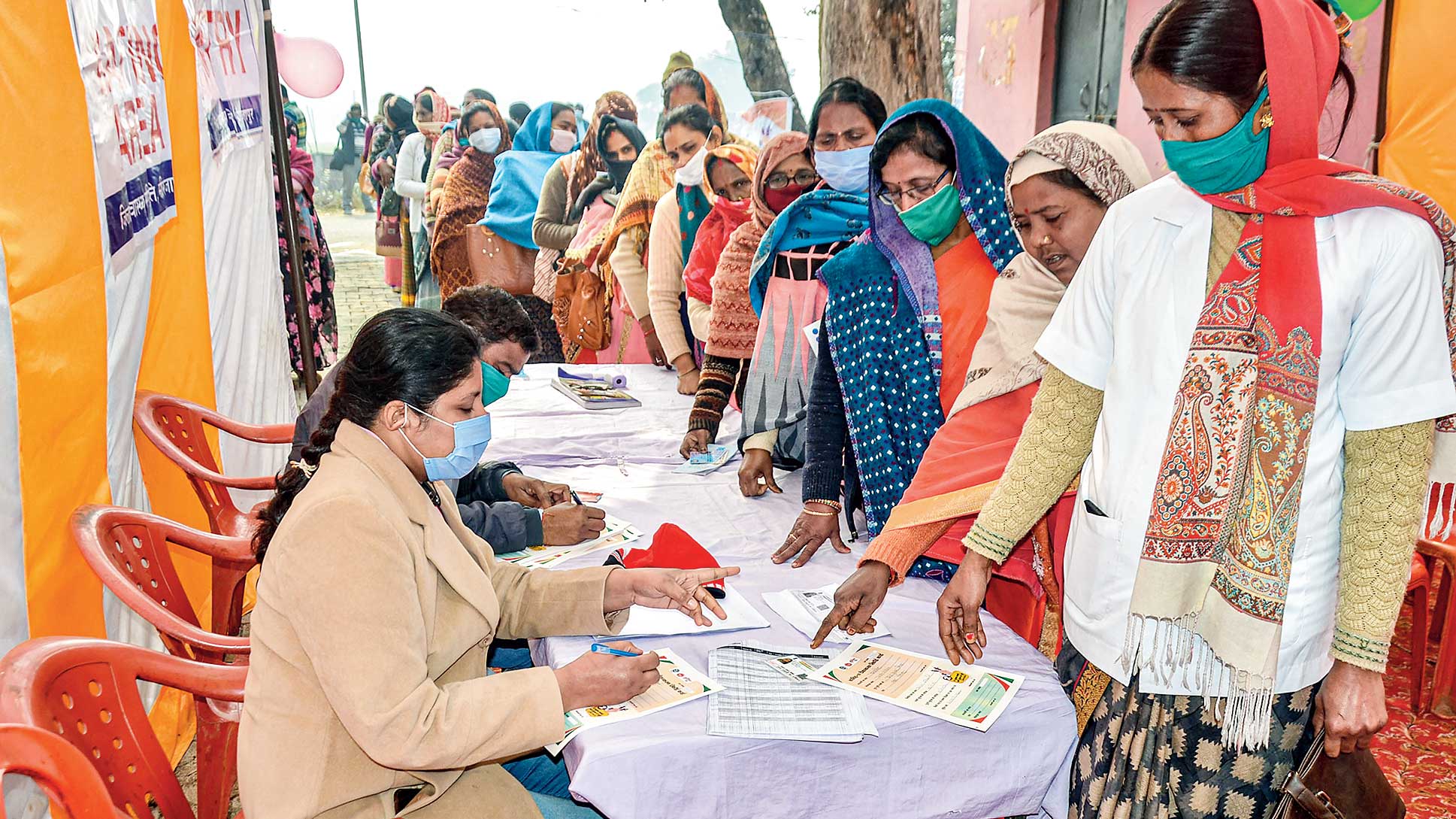How effective can vaccines be in developing a strong immunity against Sars-Cov2 or the coronavirus? To answer this, we first need to know how our immune system works. When a pathogen enters the body, it is confronted by “sentinel cells”, the body’s first line of defence, which engulf and devour it. If the virus manages to escape these “germ-eating” cells, it encounters the second line of defence — the humoral immune system. This mainly deploys two types of cells, the B and T cells, which process the pathogens through special antigen-presenting cells or APCs. Such APCs cleave the virus’s coat proteins into fragments and present them on their surface for the T cells to acknowledge as antigenic or foreign. B cells can also act as APCs to help the T cells recognise the specific viral fragments against which it would instruct the B cells to generate “immunological bullets” or antibodies. Such antibodies are extremely specific in their action and can destroy a virus by attacking the protein fragments on it that the T cells have chosen for targeting.
B and T cells also memorise such viruses through their target protein fragments. This memory helps the B cells produce an amplified immune response through the secretion of large amounts of antibodies in a subsequent invasion. This ensures complete neutralisation of the virus, preventing it from multiplying greatly and causing sickness. We usually get sick when a virus attacks the first time because the rate at which it multiplies is high compared to the rate of generation of antibodies by the B cells.
However, during a second attack, the amount of antibodies produced by memory B cells is much higher than the viral population. The virus is thus neutralised before it can make us sick.
This also forms the basis for the development of vaccines. Only, in the case of vaccines, instead of a live virus, either an attenuated form of the virus that is incapable of causing sickness (Bharat Biotech’s Covaxin) or a viral protein-encoding genetic material, such as an encapsulated mRNA (the Pfizer-BioNTech and Moderna vaccines) or a viral surface protein-encoding gene(s) housed in an adenoviral vector (Covishield) induces our body to produce harmless viral coat protein(s). This triggers our immunological machinery to generate antibodies as it would have done in a natural viral infection. As said, such a response is usually weak soon after the first shot as the antibodies produced are not sufficient to combat a real viral infection. However, once the booster shot is administered after two-three weeks, a sufficiently large number of memory B cells and T cells are generated to produce enough antibodies.
Thus, individuals who have been given the first shot remain vulnerable. It may take another three weeks from the administration of a second shot or longer to develop adequate immunity. This explains why so many people continue to get infected even after receiving their first shot.
The development of immunity from a natural viral infection is, however, not always guaranteed. Two factors that play an important role in determining the effectiveness and level of our immune response are (i) the pathogen’s genetic nature and (ii) its route of entry into our body. For viruses that have DNA as their principal genetic material, the composition of their surface protein through which our immunological system recognises them remains consistently conserved compared to those with RNA as their genetic material, like the Sars-Cov2. This is because RNA is more susceptible to mutation. Thus viruses such as Sars-Cov2 that rapidly change their coat proteins through mutation can prevent our humoral immune system from registering immunologic memory through the production of memory B and T cells.
Now, the South African variant of the Sars-Cov2 virus has shown up with two prominent mutations in the protein against which a popular Covid-19 vaccine has been developed. As expected, this vaccine elicited only a weak defence from the virus in individuals infected by the new variant, forcing the country to discontinue its use. This also shows the possibility of established vaccines failing to provide immunity against evolving variants of RNA viruses. Thus the present line of vaccines may not give foolproof protection against the Sars-Cov2 and so we need to continue to physically protect us even after vaccination.
There is perhaps a reasonable basis to believe that infection from a virus makes one immune to re-infection from it. But, this may not be altogether true for Sars-Cov2. Several reports have already indicated the lack of adequate levels of antibodies against this virus in already-infected individuals, thus making them vulnerable to re-infection. A large number of people have been re-infected during this pandemic because of such weak immunity. This has been largely attributed to the primary route of entry of the virus into our body, the respiratory tract, which is not supported by strong humoral immunity machinery for producing enough antibodies as well as a rapid drop in viral antibody levels even when they are produced. The lack of memory B or T cells in the blood of such individuals has also been prominent.
Moreover, with a rapidly mutating and evolving virus, the probability of such virus re-infecting as an entirely new and unrecognisable variant is always there. Thus, depriving the already infected of vaccination may not be prudent. Instead, they should be treated as uninfected candidates to generate enabling “herd immunity” against the virus and accomplish the holistic goals of the present vaccination drive.
The writer is head of the department of biotechnology and the Guha Centre for Genetic Engineering and Biotechnology, University of Calcutta











